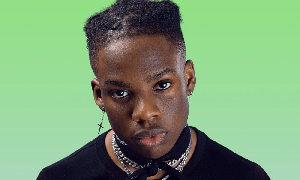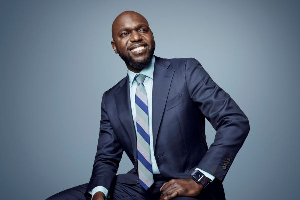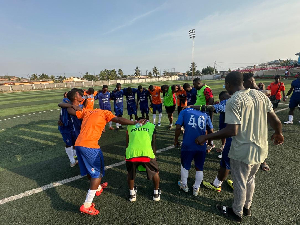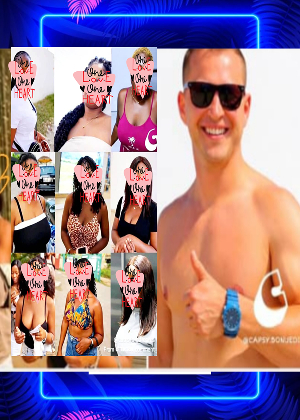For a while now, I have been thinking about how a lot of people, born into situations that are considered failures [by many], have defied all odds and risen to prominence. For instance, history has captured the stories of several people who were born into poor families – families that probably would have been the last to ever cross the mind of any discussant in a conversation which affluent families were discussed.
Yet, these people have surprisingly grown to become great people, from whom affluent families have also been derived. This and whatnot have reaffirmed my belief in the assertion that “…our destinies are not tied to the situations in which we were born”.
The Akans say that “Obi nnim ?bremp?n ahy?ase?”, which loosely translates into English language as “One can hardly look at a child and predict what the child would become in future”. This statement, in my book, is one of the greatest truisms of all time, judging from the story’s history has captured of the life struggles of many people on their odysseys to greatness.
I would like to practically conjure up the image of this article’s title to you - dear reader, by citing an example with the life of one of the many people who have risen from ‘grass to grace’. Albeit he was born and raised in a home that was disdained and belittled by society back then, he has grown to chalk successes that no one had ever envisaged of him before.
He’s Dr. Benjamin Carson, the man with the gifted hands. As a youngster with an undying interest in everything medicine – specifically neurosurgery, I personally find his story pretty motivating and, in many ways, hope-inspiring.
Born to the Carsons in 1951, Ben spent his early life in Detroit, amidst what would be described by many as challenging experiences. He was the last child of his parents’ two children. He enjoyed fatherly love and care for about eight years, because at age eight, his parents divorced, and was since catered for by a single, financially poor, mother, Sonya Carson. Imagine a child of his age spending the rest of his life without a father! Life would be pretty unpleasant for such a child, methinks.
At the get-go of his academic life, Ben had difficulties in grasping what he was taught in school, to a point where he was considered the dumbest kid in his class. Some, even, described him as a dunderhead. He was one of such students a teacher could pre-empt will not make it in life, due to his discouraging performance.
But, thanks to his mother, who, notwithstanding the fact that she was unlettered, adopted approaches that would fast forward make Ben and his brother, Curtis, the sharpest students in their various classes. Under her watch, rather than spending their time watching television, Ben and his brother focused on their academics. Among other things, she assigned them to read at least two books from a library, each week and present her with a report of what they had read, at the end of the week. She also forced them to memorize their timetable.
From then on, Ben’s performance improved. He suddenly zoomed up from the bottom to the top of his class. “The once dumbest boy is now the sharpest in his class”. Not only did his performance improve, but he also won many, many awards, in line with his promising performance. He won the admiration of both teachers and colleagues. This marked the beginning of his success story.
After High School, Ben Carson earned a scholarship to Yale University, one of the prestigious universities in the USA, where he majored in psychology. Four years elapsed, and he entered University of Michigan, where he earned a medical degree. Later, he attended Johns Hopkins University Medical School, where he completed a residency in neurosurgery. Voila! The once dummy Ben is now a neurosurgeon.
It is of paramount importance to add that Dr. Ben Carson became the director of paediatric surgery at Johns Hopkins Hospital when he was only 33 years old, making him one of the youngest doctors in the USA to earn such a title. Fast forward, he held a professorship in oncology, plastic surgery and paediatrics at the same hospital.
As it is said that “the camel and its hunch are inseparable”, it is impossible to tell Ben Carson’s story without the mention of the successful separation he made of occipital craniopagus twins – twins conjoined at the head – in 1987. The success of this surgery, which lasted for several hours, gained Carson a worldwide fame.
Who, during Ben Carson’s, had ever envisaged that the ghetto boy from Detroit would one day become an icon of the world? If there was anyone, then I guess it was his mother.
Carson encountered several challenges along the way, as he travelled from being a NOBODY to becoming a SOMEBODY. He suffered mockeries, bigotries, racisms and humiliations from neighbours, colleagues, and even teachers - for the mere fact that he was black and from a poor family. These, however, did not stop him from rising to prominence.
We can learn the following from his life story:
It doesn’t [really] matter the situations in which we were born, it doesn’t matter the homes we are coming from and it doesn’t [always] matter where we have started from, we can rise to prominence, with hard work and resolve.
In much the same way God has made a SOMEBODY out of a once NOBODY Ben Carson, He will do for each and every one of us too, Insha Allah. Our destinies are not tired to the situations in which we were born, so, let’s not despair in God’s ability to change our stories.
Opinions of Saturday, 31 October 2020
Columnist: Mohammed Ezzideen Yakub
Our destinies are not tied to the situations in which we were born
Entertainment














